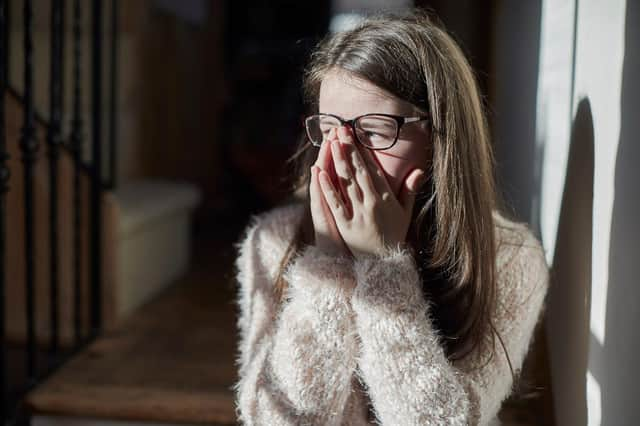CHILDLINE ADVICE: Why we need your support to help close worrying loophole


Often, a young person’s understanding of relationships might be based on television shows or celebrity couples. It’s crucial that young people also learn about consent and communication along with other factors of healthy relationships as listed on the Childline advice website.
By understanding what a healthy relationship looks like, it helps young people to understand what an unhealthy one would look like too. One of the biggest concerns we hear from children contacting Childline about relationships is about older adults taking advantage of them in a relationship.
Advertisement
Hide AdAdvertisement
Hide AdHannah* swam from a young age and took training seriously. She admired her coach Jeff* and would work hard to be given praise by him. When she was 15 Hannah was having a difficult time and Jeff built her trust by supporting her.
She said ‘After I turned 16, he started commenting on my appearance which he hadn’t done before. He’d say I looked beautiful and attractive. I’d not really heard a man say those kinds of things about me before so it felt very new.”
Things progressed to the point where they started having sex. The relationship lasted over a year before a disclosure revealed what had been happening. The police questioned Jeff but no charges were brought due to Hannah being over 16, and the law not viewing Jeff as having a position of trust over Hannah.
In this instance, Hannah admitted that this was the first time she had been given these kinds of comments. Young people can get caught up in the excitement of early relationships, making it even more crucial that they understand what is and isn’t healthy behaviour. Also in this case, the relationship was with Hannah’s swimming coach, whom Hannah was trying to impress to better her skills at swimming. It’s possible for young people to view those in positions of power, like Jeff, as sources of inspiration for their hobby or skill. This can unfortunately make it easier for the adults to hold power over the young person, which can turn into exploitation, as we see here.
Advertisement
Hide AdAdvertisement
Hide AdCurrently teachers, youth workers, and doctors are in what is referred to as a ‘Position of
trust’ a legal term referring to certain roles and settings where an adult has regular and direct contact with children. It’s against the law for someone in a position of trust to engage in sexual activity with a child in their care.
However, this term does not legally cover adults who may work with children in capacities like sports coaching, faith groups, and community activities, even though they work with young people in a similar capacity to those who are classed as a ‘position of trust’.
The NSPCC is campaigning for the government to close the loophole, and make sure that every adult who has people under 18 in their care is recognised legally as being a position of trust. But we need your help.
Advertisement
Hide AdAdvertisement
Hide AdIf you want to support the NSPCC’s Close the Loophole campaign, you can visit the NSPCC website to learn more about the campaign and current laws on positions of trust. You can also email your MP, and urge them to contact the Ministry of Justice with their support for the Close the Loophole campaign.
Children who are worried about these kinds of issues can be signposted to Childline for free, confidential counselling on 0800 1111, or by visiting the Childline website. Meanwhile, adults can contact the NSPCC for advice, if they are worried that this might be happening to a child, by calling 0808 800 5000 or emailing [email protected].
*Names have been changed for anonymity